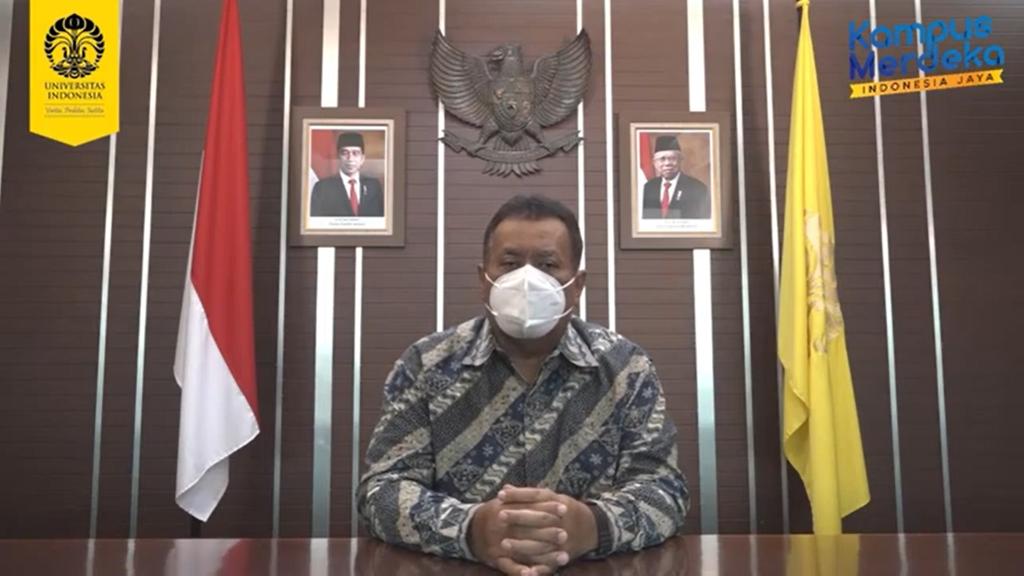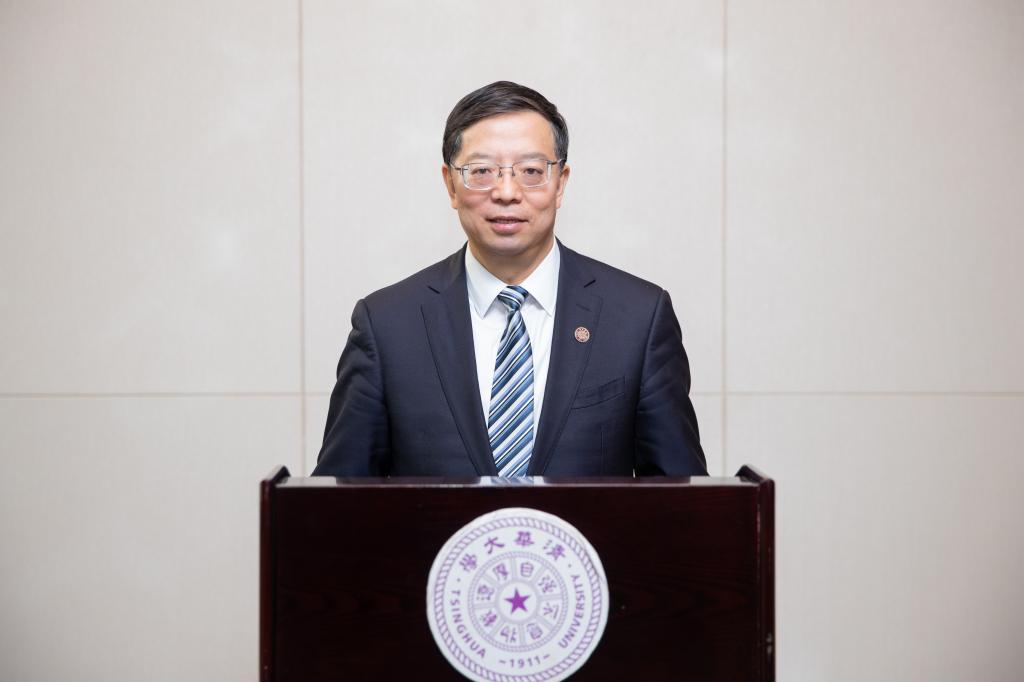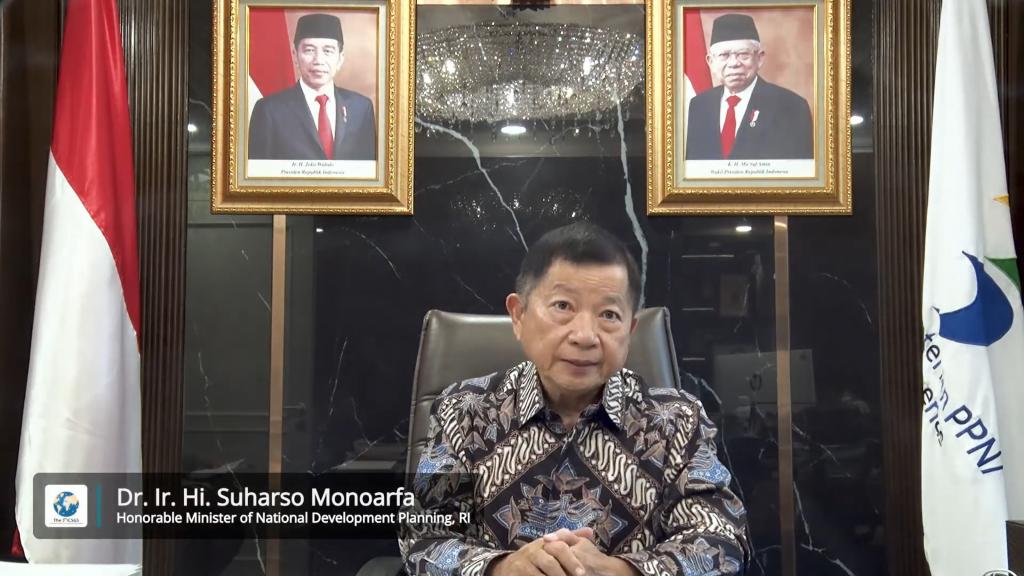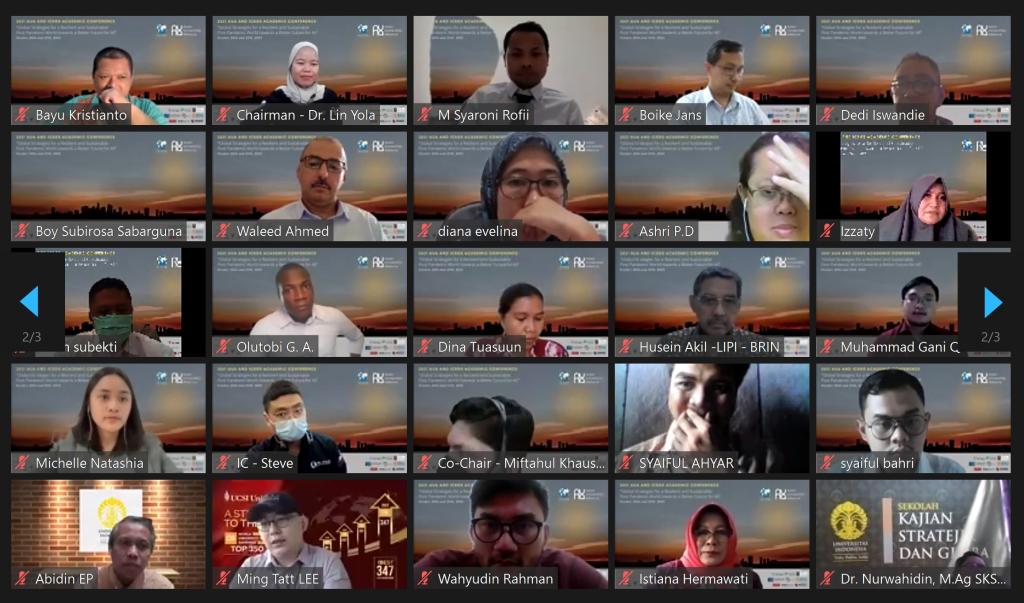Yesterday, 26th of October 2021, the School of Strategic and Global Studies of Universitas Indonesia collaborated with Asian Universities Alliance started the first day of the 2021 AUA and ICSGS Academic Conference on Global Strategies for a Resilient and Sustainable Post Pandemic World towards a Better Future for All. As the title said, this Academic Conference brought experts from various backgrounds, stakeholders and of course, scholars and students to speak about the weighing points from their expertise and/or experiences on the effort of creating a Post-Pandemic’s better future.
The conference is held through the virtual meeting platform, Zoom, that started with the opening ceremony, then continued with the keynote address, plenary forum and followed by several parallel presentation sessions in the breakout rooms based on the topic that the authors submitted their academic articles.
Professor Ari Kuncoro, Rector of Universitas Indonesia, gave his remarks in the opening right after the national anthem of Indonesia played. Professor Kuncoro pinpointed the pandemic as a global crisis that needed a dire response. Quoted from his early speech, “The crisis calls for an urgent commitment of all sectors, including academics, to overcome all of the continued challenges” and this very conference, is part of the big picture of those commitments mentioned.

Professor QIU Yong, the President of Asian Universities Alliance and Tsinghua University, also gave his speech and as the moderator said, it remarked the official opening of the conference. Through his speech, Prof. QIU Yong showed his agreement on the emergence of thinking on what will make resilient and strong in the face of wave after wave of the pandemic. “What are the potential effective ways to boost the economy and the society? How to achieve sustainable development in the post-pandemic era?” those questions are, as Prof. QIU Yong said, needed to answer in the long run.

As the conference officially opened, Dr. Ir. Hi. Suharso Monoarfa as the Minister of National Development Planning addressed the first keynote which was pinpointing the unprecedented effect of the pandemic. Indonesia as a country experienced a roller coaster in a way that we acknowledged as the middle upper income country per last year and then the pandemic hit in a long period so it hit the country into the previous situation as the lower-middle income country. The second keynote speaker, Dr. Suminto, representing the Ministry of Finance of Indonesia, showed his agreement with Dr. Monoarfa that the Pandemic hit hard, caused shock in the economy especially in the emerging country. So up to now, we can see that the ministries are working together advancing the growth engine.

The plenary session continued right after the two keynote speakers addressed their speeches and it went just as all the remarks and keynote speakers wished, a fruitful discussion. Prof. Ir. Gunawan Tjahjono, M.Arch, Ph.D, the architect of Universitas Indonesia’s Rectorate Building who is also one of the prominent architects from UI, effectively moderated the discussion between all the cross-sectors representation of the plenary speakers. All of the speakers gave their insight that started off with Emeritus Prof. Stefano Varese from UC Davis, USA, continued with Prof. Dr. Riri Fitri Safitri that talked about the sustainability of the Sustainable Campus Concept. Then, Prof. Neil Collins from Nazarbayev University gave his perspectives through the lens of the geopolitical atmosphere and ran on Dr. Gwimi Sebastian Peters as Nigeria’s Director of Code of Conduct Bureau with his updates and perspectives from Africa in general, especially Nigeria.

Lastly, the regent of North Minahasa as the first discussant brought a local example of how the district government handled the situation so far and challenges that opened wide for the Academics to think more of the answers. Prof. Dato’ Dr. Ahmad bin Ibrahim stepped in the discussion as the second discussant. Several questions from the audience, and then Prof. Tjahjono moderated all the experts to have a say on respectable questions and discussions.
Around 15:40 local time, the plenary session wrapped up with the intentional enthusiasm, to remind all of the authors and audience of the conference that an intellectual breakthrough, as clever as it may be, does not automatically ensure the transition is made from theory and practice. After that, the organizer started to open the seven breakout rooms and a parallel presentation session for the authors of 144 papers accepted out of 244 submitted. It started yesterday and is scheduled to continue up to the afternoon, today 27th of October 2021. The seven sub-topic breakout rooms which are Culture and Media (Session A), Civil, Health and Safety (Session B), Health and Human Development (Session C), Sustainable Environment (Session D), Innovations and Technology (Session E), Energy and Climate Action (Session F), Law and Public Policy (Session G). Each session both held yesterday and today are chaired by respected professors from Universitas Indonesia, United Arab Emirates University, Universiti Malaya, University of Colombo, Nazarbayev University, UCSI Malaysia, Universiti Teknologi Malaysia, Inti International University, and Linton University College.
Contributed by Universitas Indonesia